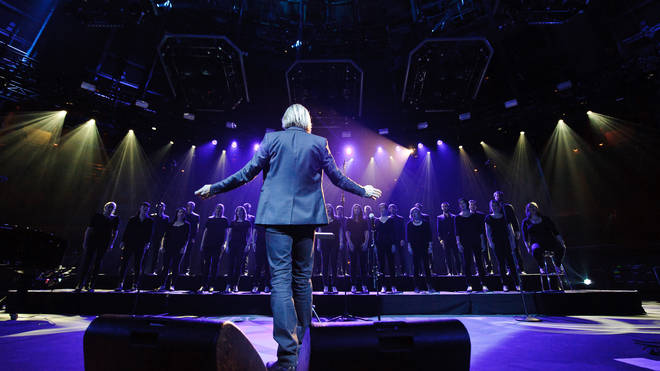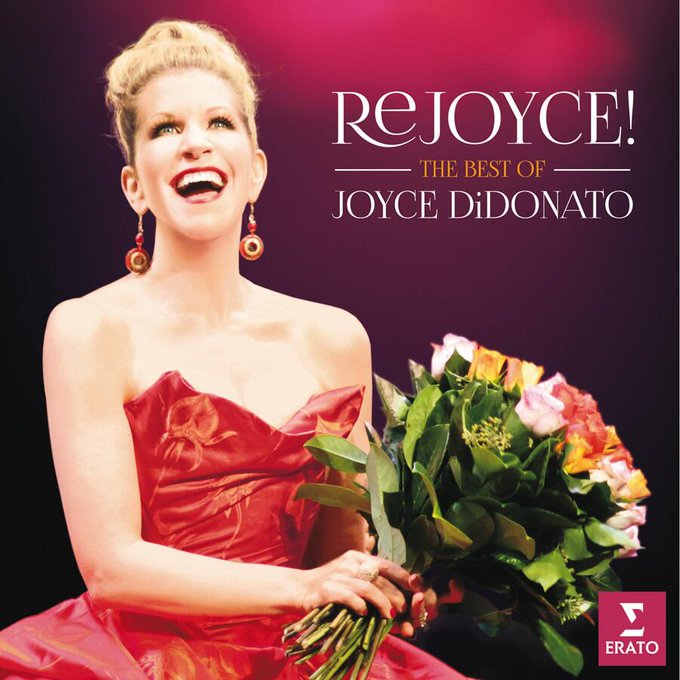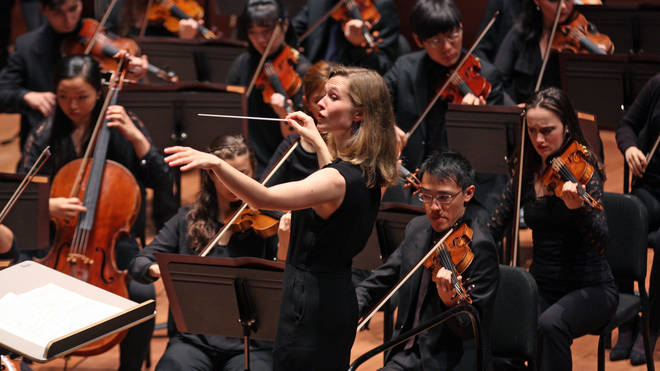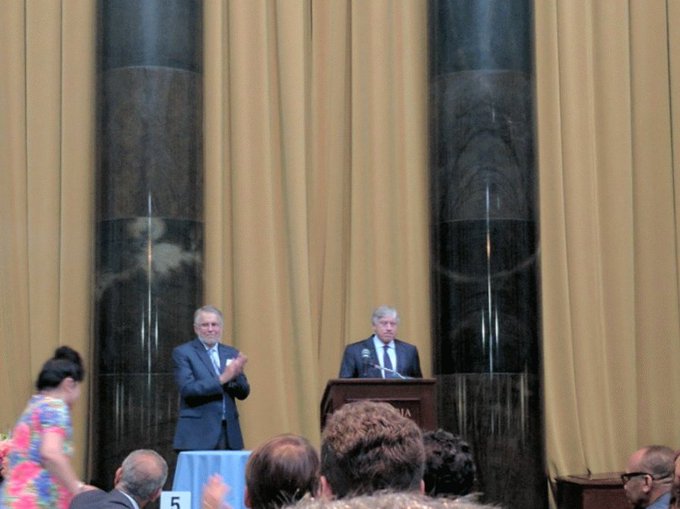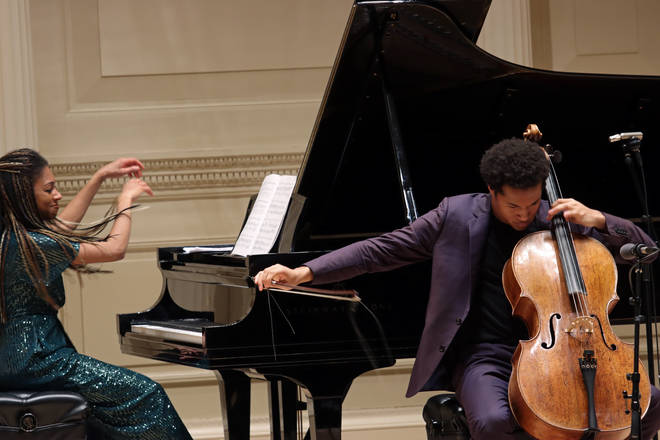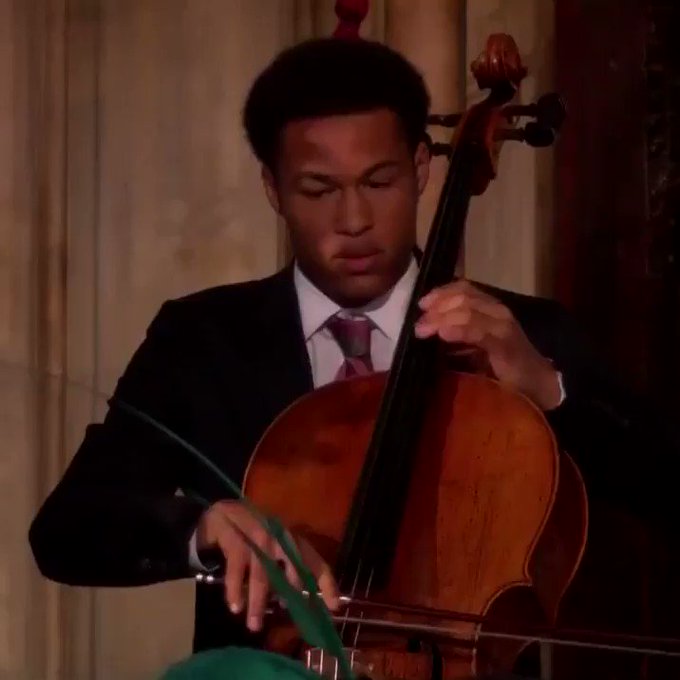It's all about the classical music composers and their works from the last 400 years and much more about music. Hier erfahren Sie alles über die klassischen Komponisten und ihre Meisterwerke der letzten vierhundert Jahre und vieles mehr über Klassische Musik.
Total Pageviews
Thursday, January 2, 2020
Ten ways the 2010s changed classical music forever
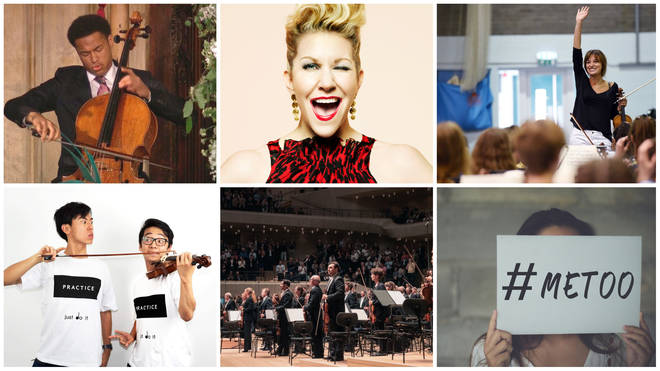
By Kyle Macdonald, ClassicFM
In a decade of change in music, we’ve selected 10 moments that reflect the altering course of classical music history.
Eric Whitacre’s Virtual Choir
21 March 2010The early 2010s were very much about virtual everything, as the arts world started to discover a whole host of new connections and collaborations that could take place online.The decade began with a project from composer and conductor Eric Whitacre who created a user-generated choir, taking video recordings from webcams around the world. His Virtual Choir made its debut in 21 March 2010. Eric has gone on to head up four other projects, with thousands of choral participants and millions of views.iTunes Festival: Eric Whitacre Performs At The Roundhouse. Picture: Getty The graphics of that Virtual Choir No. 1 definitely now look 10 years out of date, but it was a moment of classical music finding new ways to assemble, collaborate and create in a new digital age.Cuts and decline in music education
20 November 2012The 2010s have seen profound changes in music education in the UK, with funding challenges and changing education policy having serious impacts in schools across the country.The English Baccalaureate (or EBacc) was brought in by the coalition government in 2010, focusing on pupils’ performance in English, maths, the sciences, a language and geography or history. However, the EBacc has also meant fewer students taking GCSE music and other arts subjects, and the number of pupils taking GCSE music has been steadily declining since 2007.In November 2012, a group of prominent classical artists decided to intervene. Sir Simon Rattle, Sir Mark Elder, Sir Andrew Davis and Sir Colin Davis, violinists Nicola Benedetti and Tasmin Little, and cellists Steven Isserlis and Julian Lloyd Webber put their names to a letter concerning the marginalisation of creative subjects in the English Baccalaureate qualification.Concerns have deepened since. In 2018, the Association of School and College Leaders (ASCL) warned of cuts on lesson time, staff and facilities in A Level music of 39 per cent. Outside of secondary schools, the Musicians’ Union has raised concerns about funding cuts across the UK and the impact this has on professional musicians. With many community music and education projects struggling for local government funding, these issues will continue to shape the future of music into the next decade and beyond.Joyce DiDonato’s crowd-sourced anthology
26 August 2013Crowdfunding and crowdsourcing was one of the trends of the decade, from keeping local pubs open and social campaigns to life-saving medical treatments. Classical artists and ensembles, of all profiles and sizes, have turned to crowdfunding over the last 10 years as a way for resourcing recording tours, projects, concert halls and more. It's also proven to be a great way of creating and engaging new online support bases.This important trend is nicely illustrated by star mezzo Joyce DiDonato who, in 2013, invited her online fans to produce her album. Fans suggested names, selected the anthologies pieces and provided quotes and photos, including the cover photo. The album, ReJOYCE, represents this fundamental change in how projects were conceived and delivered in the 2010s.43 people are talking about thisRay Chen, TwoSet Violin and social media
19 May 2014Classical music’s move to social media was one of the trends of the decade. Now, orchestras, artists and music venues around the world share live performances, curated playlists, explainers and masterclasses across platforms which themselves have defined the 2010s: Facebook, YouTube, Instagram and Twitter.This revolution has been profound and broad, but we're going to zero in on what happened in 2014 when Ray Chen and TwoSet Violin started sharing short, entertaining musical skits (back when Instagram videos were the mind-bending length of 15 seconds...).Ray Chen's videos were fun, delightfully geeky, and grounded in something uniquely classical. In the 21st century, classical music has been finding its voice away from the formality and detachment of the past, and engaging a new audience of a digitally-savvy generation.Around the time of Chen's first snaps, young Australian violinists Brett Yang and Eddy Chen established the social media channel TwoSet Violin. It has been outrageously entertaining and has now reached over 1.93 million subscribers and 377 million views on YouTube alone.Mirga Gražinytė-Tyla and the (still rather slow) rise of women conductors
4 February 2016In early 2016, the City of Birmingham Symphony Orchestra named young Lithuanian conductor Mirga Gražinytė-Tyla as its new music director, succeeding Andris Nelsons.American maestro Marin Alsop had already shattered the long-in-place glass ceiling at major orchestras when she was appointed Principal Conductor of the Bournemouth Symphony Orchestra in 2002. But still, 29-year-old Mirga's appointment in Birmingham felt like a significant moment in the slow and long-overdue ascent of women conductors on the podiums of the world's great orchestras.Mirga Grazinyte-Tyla conducts the Juilliard Orchestra. Picture: Getty Gražinytė-Tyla's performances with the CBSO have been met with acclaim. Over the last 10 years, many other women have taken up top spots in orchestras around the world: Susanna Mälkki as Chief Conductor of the Helsinki Philharmonic Orchestra, Elim Chan at the Antwerp Symphony Orchestra, and Simone Young at the Sydney Symphony, to name just a few.Presenting Mirga Gražinytė-Tyla
Lithuanian conductor Mirga Gražinytė-Tyla makes her Deutsche Grammophon debut with a survey of orchestral works by Mieczysław Weinberg. She conducts the combined forces of Gidon Kremer, the City of Birmingham Symphony Orchestra and the Kremerata Baltica Chamber Orchestra. Listen here: https://DG.lnk.to/MirgaWeinbergPosted by Deutsche Grammophon on Friday, 19 July 2019Du Yun wins the 2017 Pulitzer Prize for Music
10 Apr 2017In 2017, for the first time in The Pulitzer Prizes’ history, all three finalists for the music award were women.Shanghai-born composer Du Yun took home the top accolade that year for her eclectic operatic work, Angel’s Bone. The board called it "a bold operatic work that integrates vocal and instrumental elements and a wide range of styles into a harrowing allegory for human trafficking in the modern world".It marked another moment in the 2010s when a woman composer gained recognition within a long male-dominated institution.Winner of Pulitzer Prize 4 music @duYun, composer Angel's Bone, did few dance steps as accepted award. Columbia Prez was't sure what to do.See Eric Lipton's other TweetsHilary Hahn and #100DaysOfPractice
4 May 2017
The 100 Days Project, where artists share their daily progress on their work, had already been around for a couple of years – but American violinist Hilary Hahn had the idea of setting the trend to a musician's daily creative act: practice. For the duration of her project, she shared iPhone moments of her practice and rehearsals.It was flaws-and-all sharing of the struggles and successes that every musician encounters in their daily practice routines. #100DaysOfPractice came to trend among musicians on social media, with others, of all stages and abilities, joining Hahn in openly sharing their progress.Musicians practising is, of course, nothing new. But the openness, honesty and positivity of this project speaks of a new approach to music-making in the digital era.Classical music and #MeToo
December 2017Two months after the New York Times and the New Yorker broke sexual abuse allegations against film producer Harvey Weinstein, classical music began its reckoning with the #MeToo movement and sexual harassment.In December 2017, the Associated Press broke allegations of sexual abuse made against two of the world's most prominent conductors: former music director of the Metropolitan Opera, James Levine, and Charles Dutoit, artistic director and conductor of the Royal Philharmonic Orchestra.In 2019, Spanish opera singer Plácido Domingo was accused by multiple women of sexual harassment spanning three decades, leading to the singer's resignation as general director of the Los Angeles Opera.The waves of the #MeToo movement continue to reshape every workplace and industry. Classical music hasn't always been the most progressive in confronting issues of sexual harassment and abuse and now orchestras, opera houses and educational institutions are having to adapt to a new era and change rapidly.Sheku Kanneh-Mason plays at the Royal Wedding
19 May 2018A spring day in 2018 saw a moment that propelled a young cellist to international stardom.The wedding of Prince Harry and Meghan Markle at St George's Chapel at Windsor Castle was historic and memorable for all sorts of reasons, not least thanks to a 19-year-old soloist, who serenaded the congregation at the height of the service. His name was Sheku Kanneh-Mason, and he’s just one of an extremely musical family of seven siblings.Sheku Kanneh-Mason and Isata Kanneh-Mason Perfor at Carnegie Hall's Weil Recital Hall. Picture: Getty His playing and sartorial style immediately created quite a sensation around the world, with #CelloBae trending on social media. His debut album featuring the Shostakovich Cello Concerto also shot to the top of the US iTunes pop chart.Kanneh-Mason won the 2016 BBC Young Musician of the Year award, becoming the first black musician to win the award since its launch in 1978. He has made acclaimed recordings on the Decca label and is establishing himself as one of the classical world's finest soloists.However, it was the moment Sheku played at St George's Chapel for Harry and Meghan that the beauty of his playing touched so many around the world.“It was such an awesome moment – just really incredible to perform for Prince Harry and Meghan at their wedding! The atmosphere was amazing and I’m proud to have played a small part in the celebrations. It’s a day I will remember for the rest of my life”26.7K people are talking about this100 million streams of Yo-Yo Ma's Bach
The 2010s changed the ways in which we listened to all music, including classical.CD sales declined further (but didn't disappear entirely), and the fad of downloading slowed. In its place rose streaming services, from giants like Spotify and Apple Music, to classical specialists like Primephonic.Streaming meant that the breadth of classical works and great recordings were available to the widest audience ever.The growth and accessibility of streaming was illustrated when Yo-Yo Ma’s first recording of the Prelude from Bach’s Cello Suite No. 1 hit 100 million worldwide streams on Spotify, with Sony Classical announcing him as the first core classical artist to reach that number of streams with one track.
Wednesday, January 1, 2020
7 of the best pieces of classical music for reading
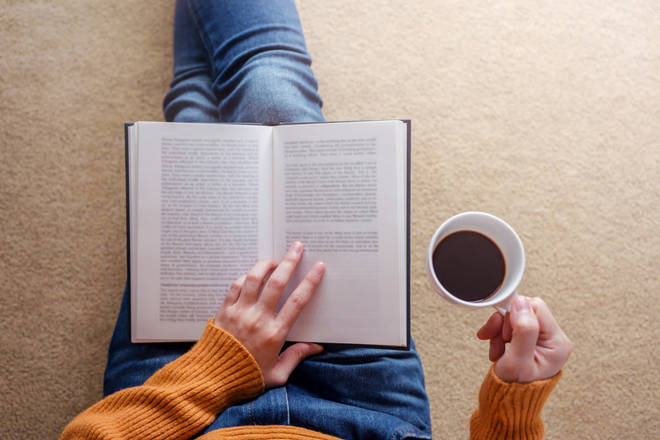
By Daniel Ross, ClassicFM
0
 |  |  |
Reading with the right soundtrack is a fine art: which piece of classical music goes with your book?
Curling up with a great book and the perfect classical soundtrack: truly, can you name anything more enjoyable?
But choosing the right piece to accompany your literary experience is fraught with danger. Pick something obtrusive and well-known, and you risk losing focus. Pick something insufficiently active and you may as well not bother.
So here’s our list of perfect music to accompany your latest fireside read, all of it perfectly pitched to enhance your novelistic experience...
Samuel Barber: Violin Concerto
If you’re grappling with the literary boom that brought us what became known as the ‘Great American Novel’, you’ll need a suitably Yank-inclined soundtrack to aid your reading.Whether it’s Fitzgerald or Baldwin or Bellow, it’s essential to listen to a piece which captures and crystallises an American state of mind.There are of countless examples, but Barber’s violin concerto is a true American great: grandstanding and slick, but deeply emotional in its slower passages, it’ll bring out the lyrical zip of the right novel.Joseph Haydn: Symphonies
Reading the classics? Need to feel the perfect mix of stately propriety and cheekiness to go with your subtly subversive comment on high society?Haydn’s status as a mere courtly composer does him a bit of a disservice, and likewise, the true impact of greats like Jane Austen wasn’t truly appreciated until much later. And paired together, it really works.Ludwig van Beethoven: Symphony No. 7 (second movement)
Taking in the complex and circulatory narratives of a classic crime thriller needs a contemplative soundtrack as you survey all the angles and try to work out whodunnit.Cycling through the suspects in an Agatha Christie vignette means evaluating the options over and over, and Beethoven’s cyclical, haunting and tense motif will help you mull over the motives.Howard Shore: The Lord Of The Rings
Absolute top tip: when you’re reading fantasy fiction – whether it’s George RR Martin or Ursula Le Guin – movie music can be distracting. But if you stick to the less hummable, more background-y bits of Shore’s mammoth compositions for Peter Jackson’s Tolkien movie adaptations, you’ll be surprised how immersive your reading experience becomes.Now, you might be tempted to go a step further in this direction and try Wagner’s Ring Cycle for some extra depth and intrigue for your fantastical jaunt, but we must advise caution: Wagner and books only makes for torn pages and weeping.Gerald Finzi: Eclogue
Almost imperceptibly melancholic, Finzi’s sweeping work is the perfect soundtrack to a winsome bit of nature writing.Deeply imbued with the bucolic soul of the English countryside, his Eclogue is just the thing if you’ve got some Robert MacFarlane or Laurie Lee nestling on your bedside table. You are about to have your mind very gently and wholesomely blown.Arvo Pärt: Berlin Mass
With his ‘tintinnabulation’ compositional technique to the fore, there is a hypnotic quality to Pärt’s Berlin Mass (Berliner Messe) which is suited to any book with an atmosphere to get lost in.A Shirley Jackson novella, perhaps some engrossing and otherworldly science fiction like Frank Herbert’s Dune, maybe even an unsettling work like Margaret Atwood’s The Handmaid’s Tale: all of these will take on a different character with a soundtrack like this.Franz Liszt: Liebestraum
Take a novel with deep romantic themes and pair it with Liszt, the master of the romantic piano.Sigh along with his indelible melodies as Rhett Butler and Scarlett O’Hara fall (or fail to fall) into each other’s arms. Swoon as the aching right hand motifs draw you deeper into Love In The Time Of Cholera.Or just pop it on while you’re reading Jilly Cooper, we’re not here to judge.
Subscribe to:
Comments (Atom)
